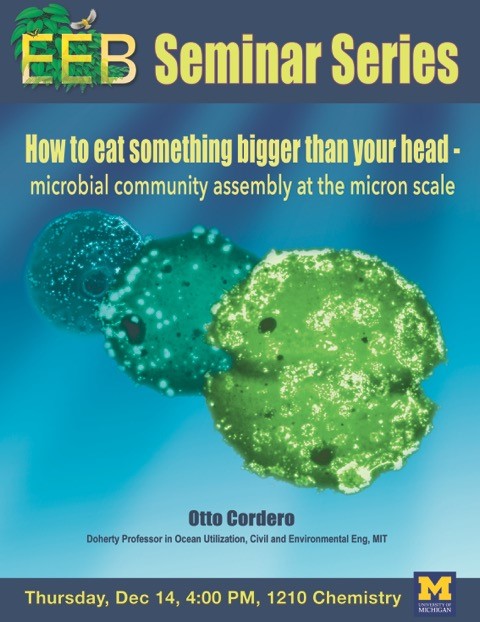In this talk I will present our work showing how ecological interactions control the assembly and function of microbial communities at micro-scales. Using model marine particles composed of a variety of biopolymers commonly found in the ocean, I will show how microbial interactions such as cross-feeding and social cheating lead to rapid successional community assembly on particles. By comparing successions on different biopolymer particles, I’ll show how the bow tie structure of metabolic networks can lead to highly reproducible, convergent community dynamics that are independent of the initial carbon source. Finally, I will argue that community composition, in particular the load of primary degraders to cross-feeders, plays a fundamental role in controlling community function, i.e. the rates of particle turnover in the environment.

